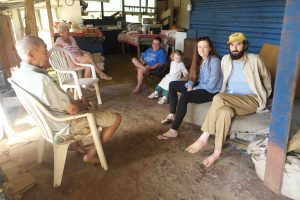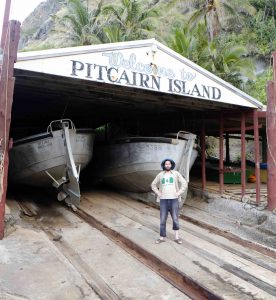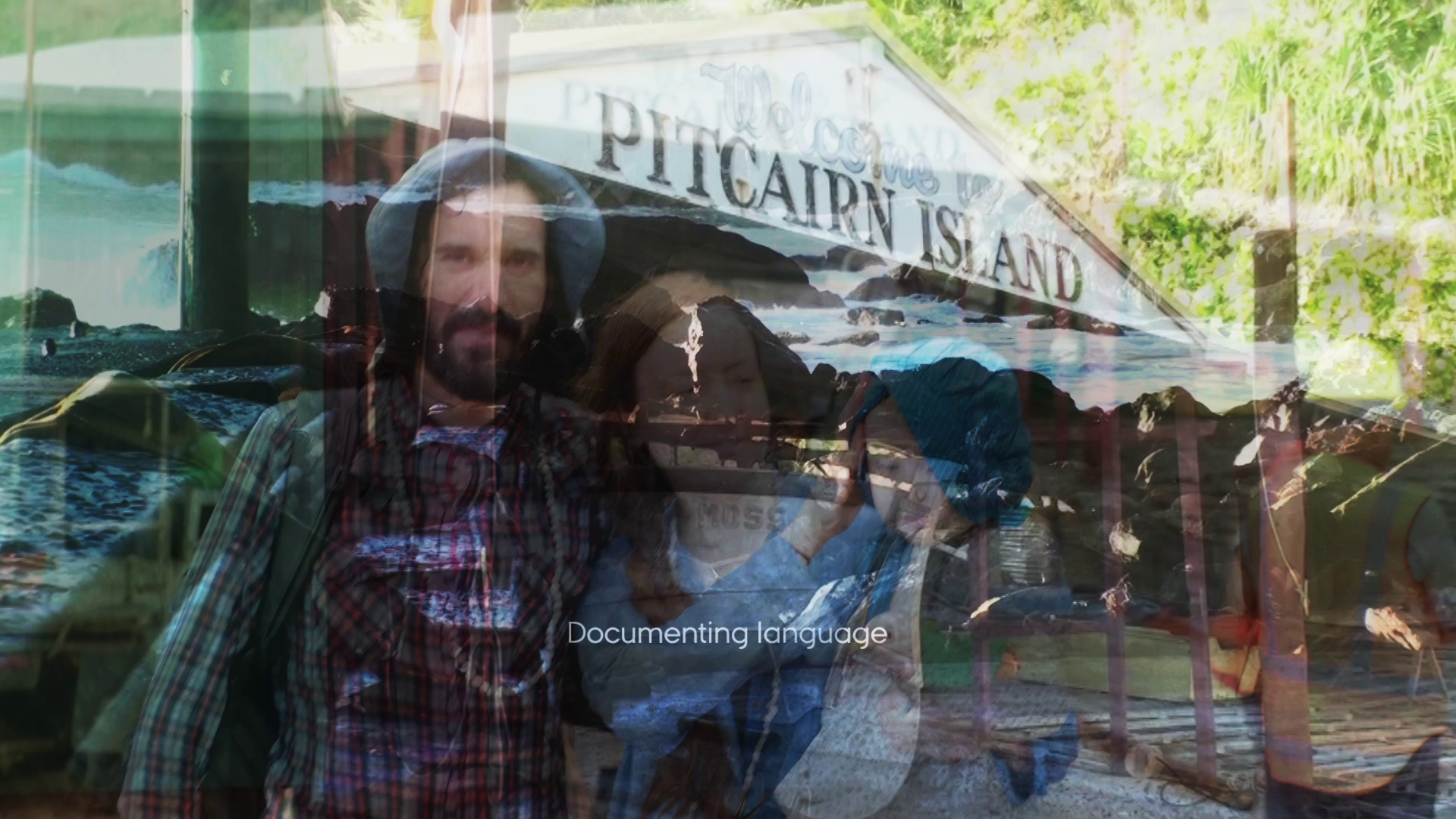Cover photo: Video still from Some Islands: Pitcairn Island 2016
I write this purposefully provocative piece from Adelaide, South Australia. The University of Adelaide is where I studied linguistics as a graduate student from 2007-2011 and where I worked as a postdoctoral researcher from 2011-2013. From one of my intellectual ground zero points I want to ask myself: what did I learn about linguistics during that time? And further: what can linguistics as a discipline do for me and possibly for others? I pose these two questions because I am situated at a verge; I have begun work in earnest as an experimental documentary film maker where I am turning the arduous work of several of my jaunts of linguistic fieldwork-as-science into linguistic fieldwork-as-art.

Like any discipline, any use of linguistic science comes with its own set of continually developing apparatus and workable tools. My PhD supervisor continually challenged me in my linguistic search to use the wild boar technique when seeking out and attempting to find the necessary scientific paraphernalia to accomplish my methodological and theoretical tasks: rummage around on the forest floor like a boar so I know what is there, and burrow down deep once I have found something I can sink my teeth into. Message 1: use those devices which will help me do the required work. I can leave what I don’t need. Message 2: there is no truth value in any theory or approach; theories are tools used to remove untruth as best as possible to help us arrive at some work in progress semblance of truth.
I have worked as a toponymist (placename researcher) and language documenter on several islands in Oceania since 2007, namely Kangaroo Island in South Australia and Pitcairn Island and Norfolk Island in the South Pacific. I have taken the apparatus of modern linguistic, anthropological, and toponymic-place research methods and theory on my travels to and around these islands and in my writings about them. I know I have carried out a certain amount of useful industry, enough at least to have kept employed as a full-time researcher for more than a decade. Along the way I have queried to what extent the equipment in my linguistic tool shed is appropriate for what I now want to do: to express more creative, more open-ended stories about the nature of relationships involving humans, which means language, place, which means environment, and self, which means how we self-perceive our own existence in the world. Here I have turned to art, and specifically the filmic medium, as a means to my end. I wish to meld the scientific—documenting language, postulating hypotheses, analysing data, testing theories, applying methodologies—with the artistic—merging word and image, incorporating music and film, creating poetry from published writing and emotionally rich and even volatile art through reinterpreting facts and certainties.

I have never seen the melding of travel-cum-pilgrimage, language documentation, linguistics, film, and pop-ambient music realised into anything similar. I believe my contribution is novel, distinct, and even peculiar. Through asking what linguistics—morphology, syntax, phonology, semantics, pragmatics—can do for me specifically as regards what I wish to execute at present and others in general now and in the future, I have opened the door for more explicitly creative disciplines to walk into a more verdant and fertile pasture where science meets in a soft and even enchanting way with art. My aesthetic picture is actually me as a film maker looking at my scientific tools and posing how sharp and available these implements actually are. I know that if they were precise and pointy enough to do what I (and not necessarily others) wanted them to do, I wouldn’t be writing right now. I continue to strive to discover what linguistics can do for me:
Dear Linguistics,
You have done me well, very well, in fact. I will not forget you. I will never leave you. Please know, however, that you have not given me all I have ever wanted or needed. Although my movement away may seem like a rampant digression, I know I have committed anything but treason. Far from it. I have merely looked further afield in the hope that I might enrich that which you have already given me: a detailed and specific yet by very nature limited way of seeing the world. I promise to remain loyal, taking what I can from the artistic and aesthetic realm. And I promise to keep returning to the (linguistic) fold, bringing whatever gems I may find. I hope those who are watching might be inspired with my pioneering. I wait in anticipation of the result.
I remain your humble scientific student-cum-budding artist,
Joshua Nash

Joshua Nash is Associate Professor at Aarhus Institute of Advanced Studies, Denmark. Pictures © the author








Joshua is doing a talk in Aarhus this Monday the 10th. More details: http://aias.au.dk/events/show/artikel/aias-fellows-seminar-jushua-nash-aias-fellow/